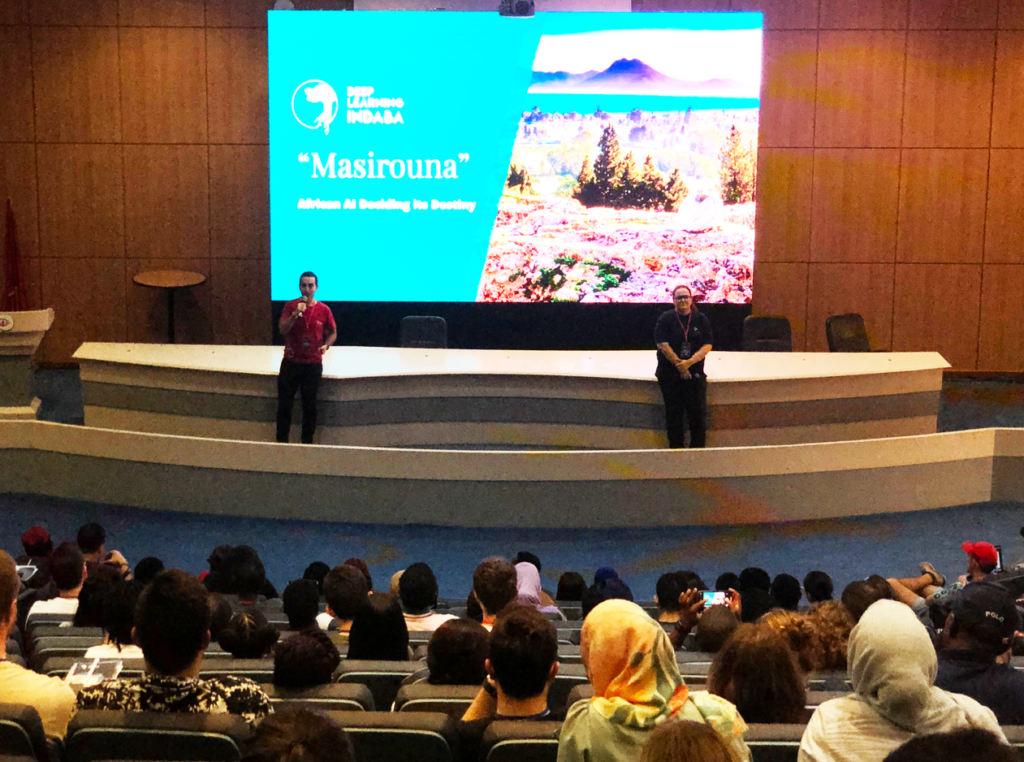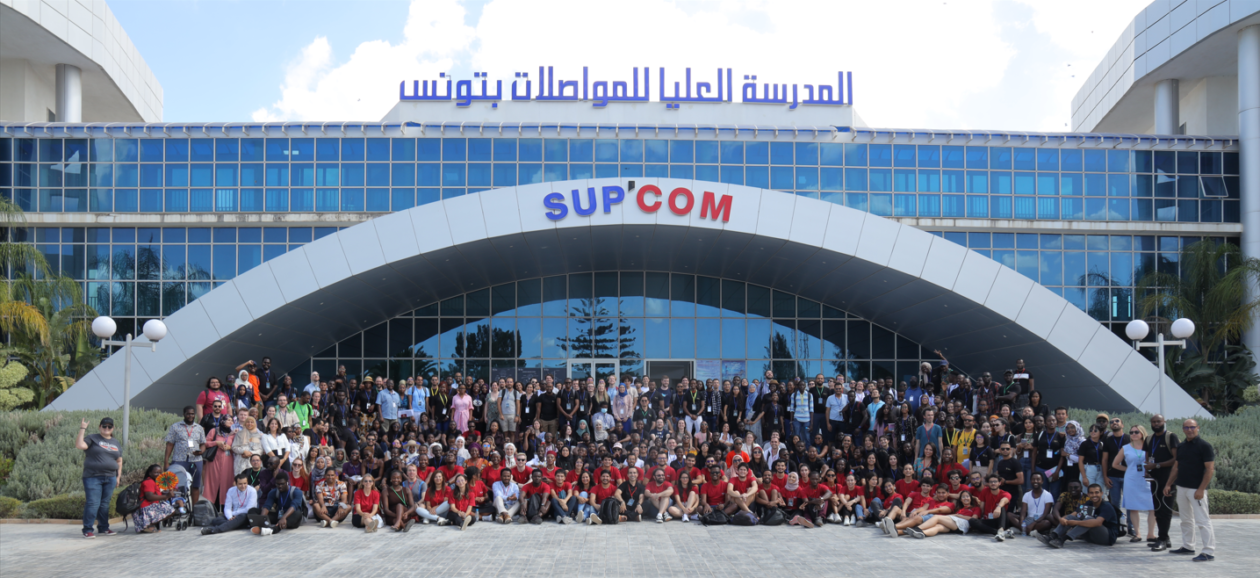Empowering African AI talent at in-person event for the first time post-covid
InstaDeep played a key role as co-organiser of the Deep Learning Indaba, Africa’s biggest AI and machine learning workshop and conference this summer.
Around 400 researchers, scientists, developers, academics and startup founders from across Africa attended the event at Sup’Com, the Higher School of Communication of Tunis in August. Deep Learning Indaba’s mission is to strengthen AI and machine learning in Africa. The organisation aims to help ensure Africans actively shape and own the technological advances that promise to reshape business and entire future economies.
In Zulu, “Indaba” means “important meeting”, while the theme for the 2022 event was “Masirouna” (“Our Destiny” in Arabic), reflecting the organisation’s core mission, while also adding a sense of the momentum that the AI community has achieved in the Indaba’s short five-year history. Such is the commitment to empowering African talent, attendance was free of charge for participants, with many of the costs of attending covered by sponsors and supporters, while a team of InstaDeepers were involved in organising the event over many months.

In their opening keynote, InstaDeep Co-Founders – CEO and Indaba Steering Committee member Karim Beguir and Zohra Slim, Chief Web Officer and Indaba 2022 Chair – shared some of the AI breakthroughs since the last in-person Indaba was held in 2019 in Nairobi.
“Since then, AI has been accelerating massively, with incredible breakthroughs in language understanding, protein folding, mathematics reasoning and beyond” Beguir said, acknowledging that some of this year’s Indaba participants actively contributed to those achievements. “More than ever, the future will be decided by those who can innovate and deliver beneficial value with AI.”
Beguir also pointed out that the Indaba community is already making a real world positive impact, pointing to the Indaba Grand Challenge, which aimed to use AI to find a cure for Leishmaniasis, a potentially deadly blood disease that infects more than 1 million a year, killing thousands, mostly in developing in countries. He announced the Geneva-based Drugs for Neglected Diseases initiative (DNDi) is testing existing drugs identified by Grand Indaba Challenge participants to see if those drugs can be repurposed to treat and, hopefully cure, Leishmaniasis.
On the sidelines of the conference, Beguir and Slim reiterated their vision for Tunis to become a future leading hub for AI in Africa, pointing to the thousands of engineering graduates and PhDs that the North African country produces each year. “Connecting them to the global AI research community through events like the Indaba is critical,” said Slim, who chaired the Tunis Indaba event; and was also awarded the Umuntu award for Services to the African Machine Learning Community, thanks to her unstinting hard work on the organisation of the event.
Speaking during the week, Karim said, “Deep Learning Indaba 2022 represents an historic moment in the African tech ecosystem, demonstrating the huge wealth of digital talent and skills available across the whole continent. Alongside that wider benefit, I speak for my co-founder, Zohra as well, when I say we are thrilled to see our home country of Tunisia firmly in the spotlight as an AI and ML powerhouse.”
Volviane’s story:
One of the hundreds of attendees at Deep Learning Indaba 2022 was 25 year old Cameroonian, Volviane Saphir Mfogo. Volviane became a minor celebrity at the event as she was accompanied by Johanna, her 9-month old daughter, throughout. Volviane is just one example of the many remarkable young African ML talents that Deep Learning Indaba aims to support and empower.
Volviane began studying ML in 2018, at the African Institute for Mathematical Science (AIMS Cameroon), which led to a scholarship for a Masters in ML at the African Masters for Machine Intelligence (AMMI) programme at AIMS Ghana. It was during her Masters that she began to focus on healthcare in relation to medical imaging, ultimately receiving an AI4D grant for her work. Appreciating the risks of sensitive patient data led her to start her PhD in computer science and cybersecurity on the internet of things in healthcare, at the University of Dschang, Cameroon.
Volviane had a long-term goal to attend Deep Learning Indaba, from when she was studying for her Masters; and her commitment to this goal paid off many times over. Not only did she meet many of her peers, she was personally invited to Accra by Google AI’s well-known Research Program Manager in Ghana, Abdoulaye Diack, where she will present her project to the Google AI team. In addition to this, Volviane was also an Indaba prizewinner for her work titled “Co-attention Mechanism with Multi-Modal Factorized Bilinear Pooling for Medical Image Question Answering”, which aims to build a Visual Question Answering model on medical images – taking a medical image input, a relevant clinical question and responding with an answer based on the visual content. She presented the work at the event in a spotlight talk which is available to view here, as well as during the poster sessions.
In Volviane’s own words, “machine learning can solve African problems, but this can only be done by Africans because nobody knows the problems better than them”. Volviane’s academic and real-life journey to the event, and the comprehensive support she was freely given by the organisers and other attendees to enable her to play a full part in the proceedings, while also caring for Johanna, is a clear example of the true spirit of Indaba and she has provided an excellent role model for other young African women who want to succeed in AI and ML.
Deep Learning Indaba 2022 took place at the Higher School of Communication of Tunis, also known as Sup’Com, between 21-26 August. For more information, please visit the event website: https://deeplearningindaba.com/2022/
